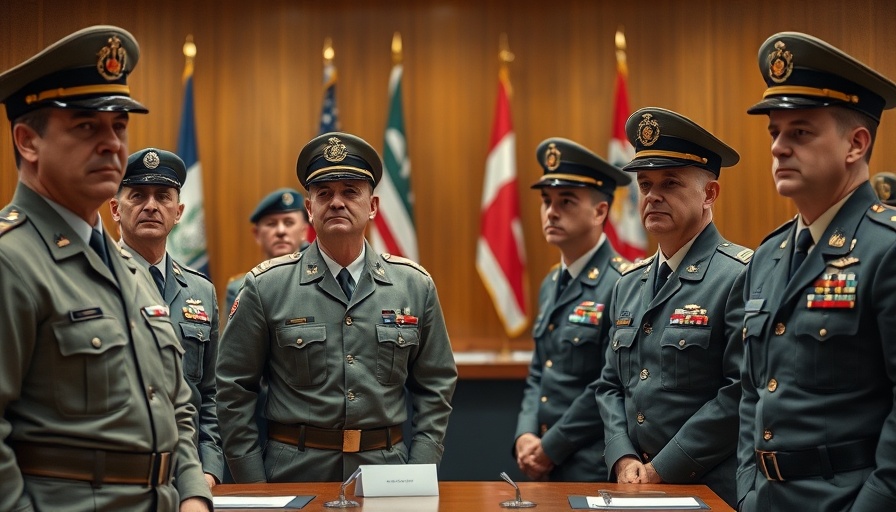
An Unprecedented Showdown: NATO Takes Action
In an alarming escalation of tensions, NATO scrambled fighter jets to intercept Russian drones encroaching on Polish airspace—a pivotal moment that marks the first time the alliance has engaged enemy targets in allied airspace. This unprecedented move underscores not only the gravity of the situation but also the seriousness of threats faced by NATO member states in light of the ongoing conflict in Ukraine.
A Response to Provocation
The Polish military reported that more than a dozen Russian drones pierced their borders amid a campaign targeting Ukraine. Polish Prime Minister Donald Tusk condemned the actions as "a large-scale provocation," emphasizing the necessity to prepare for various potential scenarios. This response, invoking Article 4 of the NATO treaty, signifies a formal recognition of threats against a member state and fosters a collective reaction from alliance countries.
Understanding the Drone Threat
As NATO mobilizes, experts are investigating the implications of this drone incursion. Initial findings revealed that although a total of nine drones were recovered, they were not armed—termed “Gerbera drones,” often utilized to mislead Ukrainian air defenses. This has raised questions about whether Moscow intended to provoke a conflict or was simply engaging in a diversionary tactic.
The Broader Implications
With escalating tensions, NATO’s actions will surely become a focal point for international relations and military strategy. Some analysts believe that this incident may transform how defensive protocols are enacted within NATO. An escalation in military readiness could be on the horizon as member nations assess the potential for further incursions and retaliatory actions. Detailed investigations will likely inform future policy adjustments regarding drone warfare and other unconventional military tactics.
Public Sentiment and Political Reactions
The notion of an air incursion from Russia has resonated deeply in Poland, stirring public sentiment around national security. Citizens are increasingly aware of the fragility of their safety amidst growing military maneuvers near their borders. On the political stage, leaders across Europe are expressing solidarity with Poland, reinforcing the idea that defending one’s allies is paramount in maintaining regional stability.
Historical Context: The Path to NATO’s Response
This drone incident is the latest chapter in a protracted saga of Eastern European tensions that have been intensifying since the start of Russia's military actions in Ukraine. Understanding the historical backdrop is essential to grasping the complexities of modern geopolitics. Past encounters have shaped NATO's strategic approach, reminding countries of the sanctity of their shared commitment to mutual defense.
Predictions: What’s Next for NATO?
The future remains uncertain as NATO navigates the implications of this confrontation. Experts posit that this incident may usher in shifts in NATO’s defense posture, as reliance on conventional military methods gives way to counter-drone technologies. Allied discussions will surely focus on revisiting defense strategies and enhancing rapid response capabilities, particularly in Eastern Europe.
Engaging with the Details: A Constitutional Approach
The details surrounding the incursion shed light on security protocols within NATO. By analyzing how this event occurred, member nations are prompted to hone their operational procedures—addressing how international law interacts with military engagement during moments of crisis. This incident may necessitate a reevaluation of military rules of engagement as they pertain to the use of drones and air defense directives.
Conclusion: The Call for Vigilance
As NATO continues to address this incident and work collaboratively with Poland, vigilance among member states is crucial. Each nation must recognize the importance of collective defense and stay informed about potential threats. The current geopolitical climate demands active engagement and readiness, reflecting a commitment to global peace and security.
 Add Row
Add Row  Add
Add 




Write A Comment